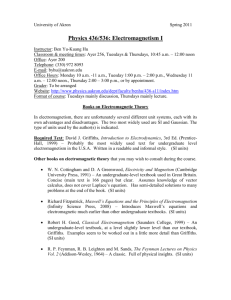- Problem Solving Part 2 (physics)mr. Standring's Webware 2nd Edition
- Problem Solving Part 2 (physics)mr. Standring's Webware 2.2
- Problem Solving Part 2 (physics)mr. Standring's Webware 24
- Problem Solving Part 2 (physics)mr. Standring's Webware 2.

There are two types of problem solving activities for this class.
- Group Problem Solving (Mondays and Wednesdays)
- Problem Solving Sessions (Fridays)
Group Problem Solving (Mondays and Wednesdays)
These in-class problems are solved in groups and are not graded.
So, some of you may have heard of how a couple of us tried to propose a new physics site for less conceptual questions and more problem solving, the proposal was closed, and we ended up creating a new site outside of the stack exchange network (see here for more details). In this post, I'm going to explain the scope of the new site, the current site construction progress, and at the.

| SES # | TOPICS |
|---|---|
| 1 | Group problem (PDF) |
| 2 | Group problem (PDF) Group: Line of charge (PDF) Group: Uniformly charged disk (PDF) |
| 4 | Group problem: Superposition (PDF) Group problem: E from V (PDF) Group problem: Build it (PDF) |
| 7 | Group problem: Charge slab (PDF) Group problem: Charge slab (PDF) |
| 9 | Group problem: Spherical shells (PDF) |
| 10 | Partially filled capacitor (PDF) |
| 12 | Group problem: B field from coil of radius R (PDF) |
| 14 | Group problem: Non-uniform cylindrical wire (PDF) Group problem: Current sheet (PDF) |
| 17 | Group problem: Current loop (PDF) |
| 18 | Group problem: Circuit (PDF) |
| 20 | Group problem: Changing area (PDF) Group problem: Generator (PDF) |
| 21 | Group problem: Solenoid (PDF) |
| 23 | Group problem: Coaxial cable (PDF) Group problem: Circuits (PDF) |
| 28 | Group problem (PDF) |
| 30 | Superposition principle (PDF) Group problem: Plane waves (PDF) |
| 31 | Group problem: Inductor (PDF) Group problem: Capacitor (PDF) |
| 33 | Group problem: B field generation (PDF) Group problem: Energy in wave (PDF) |
Problem Solving Sessions (Fridays)
Counts toward 6% of the course grade.
- Oct 23, 2020 student notes and problems biology 30 Posted By Astrid LindgrenPublishing TEXT ID 43775c24 Online PDF Ebook Epub Library the best biology o level notes compiled from all around the world at one place for your ease so you can prepare for your tests and examinations with the satisfaction that you have the best resources available.
- Problem: A 10 kg object experiences a horizontal force which causes it to accelerate at 5 m/s 2, moving it a distance of 20 m, horizontally.How much work is done by the force? The magnitude of the force is given by F = ma = (10)(5) = 50 N. It acts over a distance of 20 m, in the same direction as the displacement of the object, implying that the total work done by the force is given by W =.

| SES # | TOPICS |
|---|---|
| 3 | Coordinate systems; Gradients; Line and surface integrals (PDF - 1.4 MB) |
| 6 | Continuous charge distributions (PDF) |
| 8 | Gauss's law (PDF) |
| 11 | Capacitors (PDF) |
| 16 | Ampere's law (PDF) |
| 19 | Magnetic fields: Force and torque on a current loop (PDF) |
| 22 | Mutual inductance and transformers; Inductors (PDF) |
| 26 | RC and RL circuits (PDF) |
| 29 | Driven LRC circuits (PDF) |
| 32 | EM radiation (PDF) |
| 35 | Interference (PDF) |
Welcome!

Problem Solving Part 2 (physics)mr. Standring's Webware 2nd Edition
This is one of over 2,400 courses on OCW. Explore materials for this course in the pages linked along the left.
Problem Solving Part 2 (physics)mr. Standring's Webware 2.2
MIT OpenCourseWare is a free & open publication of material from thousands of MIT courses, covering the entire MIT curriculum.
No enrollment or registration. Freely browse and use OCW materials at your own pace. There's no signup, and no start or end dates.
Problem Solving Part 2 (physics)mr. Standring's Webware 24
Knowledge is your reward. Use OCW to guide your own life-long learning, or to teach others. We don't offer credit or certification for using OCW.
Problem Solving Part 2 (physics)mr. Standring's Webware 2.
Made for sharing. Download files for later. Send to friends and colleagues. Modify, remix, and reuse (just remember to cite OCW as the source.)

Learn more at Get Started with MIT OpenCourseWare
